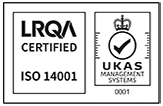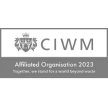
The global waste crisis has gained more and more traction over the past several years, with high profile campaigns, celebrities, TV shows and the media revealing the devastating impact of waste on the planet.
While change needs to happen on a large scale, there are also small changes that we can make as individuals to contribute to a shift to a less wasteful culture.
We are taking steps in the right direction. The introduction of the plastic bag tax had an enormous impact on our use of these single-use plastics. And more cafes and restaurants have rejected the use of plastic straws. Reusable bottles for water are becoming more commonplace, and this year, Glastonbury Festival rejected plastic water bottles from its site. The coffee cup crisis is yet to be meaningfully solved, but while industries work on solutions, what easy changes can individuals make?
Avoid plastic-wrapped food
Plastic wrapped food in supermarkets that are usually non-recyclable contributes tens of thousands of plastics to landfill every year. Thankfully, things are moving in the right direction: Sainsbury’s announced that they are stopping plastic bags for loose fruit, vegetables and bakery items, and their plastic trays for pre-packaged veg are going too.
Choosing wisely isn’t the only way to reduce your plastic waste. Buying in bulk using reusable containers, as piloted by Waitrose, perhaps gives a glimpse into the future of how we will buy our food. Sussex locals can buy this way at Chichester’s Refillery store.
Change your lunch habits
So, you’ve got your reusable water bottle. That’s a step in the right direction. But what about the rest of your lunch? If you rely on single-use cutlery for your Meal Deal every day, think about switching to a reusable set. And is your shop-bought lunch in a plastic container? Consider making your lunch at home and taking it in reusable Tupperware. You might find it saves you money too.
Think before you buy
Cheap fashion and fast-changing trends means we are buying more clothes than ever and disposing of them at an alarming rate too. There have been calls to buy fewer clothes that last longer to reduce the environmental impact. When you are finished with clothes, dispose of them responsibly, whether that’s by donating, selling, or recycling to avoid sending them unnecessarily to landfill.
It’s not just fashion that we over consume. It’s often thought that we buy too much more generally and so we have more to dispose of. If we made better choices about purchases, opting for items that are really needed, and that will last, these decisions will help reduce landfill contributions. Buying second hand can also prove to be an environmentally sound choice (and again, save you some money).
Recycle more
Thanks to kerbside collections and a better general awareness of the importance of recycling, we are recycling more than ever. There’s more that can be done, but there’s often confusion about what can and can’t be recycled as it changes and can vary by region. Recycle Now has advice on specific items, such as straws and bread bags.
When you’re undertaking a home renovation, moving house or overhauling your garden, consider hiring a Rabbit skip. That way, the recycling sorting is done for you, saving you the job of sorting the general waste from the recycling and the peace of mind that none of your waste will be sent to landfill.
Plan your meals better
According to the United Nations, about a third of the food the world produces for human consumption gets lost or wasted every year. That’s around 1.3 billion tonnes. Planning meals better and freezing more food can help reduce food waste. Meal box services such as Hello Fresh provide only the exact quantities needed to create meals, cutting down on unnecessary waste.
Contact Rabbit today for more information about recycling, skip hire and plant hire. Reach us on 01903 762020 or email info@rabbitgroup.co.uk.




